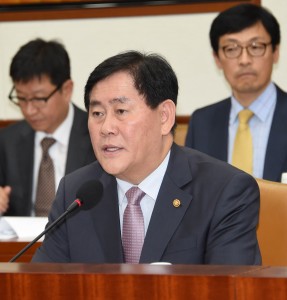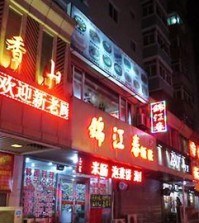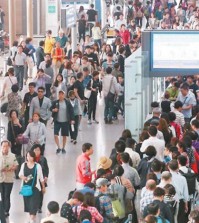- California Assembly OKs highest minimum wage in nation
- S. Korea unveils first graphic cigarette warnings
- US joins with South Korea, Japan in bid to deter North Korea
- LPGA golfer Chun In-gee finally back in action
- S. Korea won’t be top seed in final World Cup qualification round
- US men’s soccer misses 2nd straight Olympics
- US back on track in qualifying with 4-0 win over Guatemala
- High-intensity workout injuries spawn cottage industry
- CDC expands range of Zika mosquitoes into parts of Northeast
- Who knew? ‘The Walking Dead’ is helping families connect
S. Korean gov’t to pump $7.95 billion into local economy

Finance Minister Choi Kyung-hwan (C) chairs the meeting of economy related ministers in Seoul on Oct. 27, 2015. (Yonhap)
SEOUL/SEJONG (Yonhap) — The government will inject an extra 9 trillion won (US$7.95 billion) into the local economy in the fourth quarter to keep alive the growth momentum generated in the past few months, the finance ministry said Tuesday.
In a meeting of economy related ministers chaired by Finance Minister Choi Kyung-hwan in Seoul, policymakers said every effort will be made to generate sustainable domestic demand by take advantage of excise tax cuts, a rise in household income and aggressive fiscal spending measures.
Asia’s fourth-largest economy grew 1.2 percent on-quarter in the July-September period, the highest gain in five years.
Data showed that while exports have traditionally led growth, this has not been the case this year. Weak exports brought down growth by 0.7 percent in the third quarter. In the first nine months of 2015, the country’s cumulative exports reached $396.9 billion, down 6.6 percent from a year earlier.
“Policy goals will be centered on bolstering the growth momentum in fourth quarter,” Choi said.
Falling exports are weighing down on the economy, but the revival of domestic consumption has helped offset some of the losses, making it imperative that more measures are taken to generate local demand, he said.
“If exports grew like it did in the past, South Korea’s growth would have reached the upper 3 percent level,” the official, who doubles as the country’s deputy prime minister in charge of economic affairs claimed. He said that one of the key reasons for South Korea’s weak exports is linked to growing downside risks caused by the slowdown in the Chinese economy.
On how best to generate demand, the central government will raise the fiscal spending target by 0.5 percentage point, so at least 96 percent of all planned projects will get funding.
This can lead to a total of 1.6 trillion won in state funds reaching the market, the ministry said, adding money set aside to deal with emergency situations, which currently stands at some 250 billion won, will be used up.
In addition, regional governments will be urged to push up spending to 88 percent of their original plan, from 87.2 percent, which can allow 6.1 trillion won worth of more funds to reach the market.
Besides such measures, the government said the state-run National Health Insurance Corporation will pay clinics and hospitals upwards to 1 trillion won within the year to compensate them for insurance coverage provided to patients. Usually, this kind of payment to settle accounts is made early in the new year.
The finance ministry said the Industrial Bank of Korea will provide 1.8 trillion won in investment support funds to companies in the fourth quarter, up 400 billion won more than was previously planned.
This can make it possible for local companies to spend more on various investment projects.
According to the Federation of Korean Industries, the country’s top 30 business conglomerates aim to spend 74.5 trillion won on investment.
The ministry, meanwhile, said that it will urge the National Assembly to ratify the free trade agreement with China as soon as possible, which can boost exports.
All action will be taken to push for reforms in the country’s labor, financial and public sectors, as well as revamp the educational system, which can make the country more competitive in the global arena, it added.















